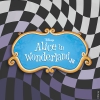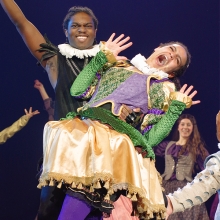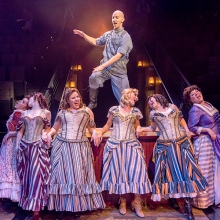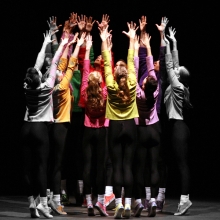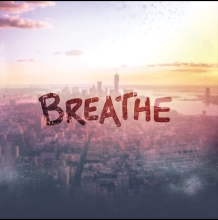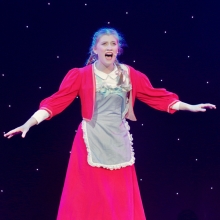Do's and Don'ts of Licensing
Making Changes
During rehearsals, directors or producers may believe that some changes are required to make the show work in their theatres. They may feel making "minor adjustments" to a show (such as changing the gender of a character, changing the name of a town to give it local significance, adding songs that appeared in the movie version of the musical, etc.) is inconsequential to its integrity, or they believe they have the right to "experiment" with the authors' intentions as an expression of their own artistic vision.
This is not the case.
When you are granted a performance license by MTI, by law, the show you license must be performed "as is." You have no right to make any changes at all unless you have obtained prior written permission from MTI to do so. Otherwise, any changes violate the authors' rights under federal and international copyright law. Without prior permission from MTI, your actions may subject you to liability – not only to the authors, but also to us – for violating federal law and for breaching the terms of your license agreement, which clearly forbids you to make any changes or deletions.
Occasionally, new versions of shows are created when the authors or someone the authors have approved, reconceives the piece. However, only the authors have the right to make these revisions, and they rarely grant third parties permission to do so. If you feel you must experiment with reconceiving a show, there are many works already in the public domain (e.g., Shakespeare, Gilbert and Sullivan) that are no longer protected by U.S copyright law.
It's important to remember that under federal copyright law, not only can the director or producer who decided to change the work be held liable, but the entire production staff, cast and crew – even the owner of the building – can be held liable, whether or not they knew they were part of a willful violation of copyright law.
Grand Rights vs. Small Rights
The rights that MTI is able to grant under our contracts with the authors are limited to "Grand Rights." Grand Rights cover the right to present the show, in its entirety, on stage. These rights do not include performance of a single song or medleys ("Small Rights"), videotaping, use of a logo or merchandising. In some instances, MTI has separately negotiated representation of additional rights, but those are administered on a show-by-show basis.
"Small Rights" is a term used to cover performances of individual songs in a concert or cabaret-type setting. There are three major agencies that control these rights in the U.S.: SESAC (Society of European Stage Authors and Composers), ASCAP (American Society of Composers, Author and Publishers) and BMI (Broadcast Music, Inc.) Depending upon the songs that are being performed, licenses may be required from one, two or all three of these organizations for a single presentation. Most schools, churches, restaurants and clubs pay an annual fee to obtain a "blanket license" from these licensing agencies that covers the "small rights" use of all music in their respective catalogues for the year. Note that these blanket licenses DO NOT permit dramatic performances of songs. The songs can be performed only in cabaret style. While it is sometimes difficult to draw a distinction between dramatic and non-dramatic performances, a dramatic performance usually involves using a song to tell a story or as part of a story or plot. A blanket license permits neither the use of dialogue from the show nor sets, costumes and/or choreography that invoke the original show.
Dress Rehearsals, Contest Excerpts and More
Any presentation of a musical licensed by MTI that takes place in front of an assembly of people (no matter how few) is considered royalty-bearing under the law, whether or not admission is charged. This can include "invited" dress rehearsals or contest excerpts. A valid performance license is required for all of these performances. If a group has any questions as to whether or not a performance requires a royalty, they should contact their MTI licensing representative.
On a related topic, MTI is occasionally approached by a group looking either to a) create a revue based on a composer's body of work, or around a theme (e.g., "love songs") or b) take existing songs from shows and put them into a new dramatic context. Neither of these examples would be covered under a "small rights" license since their thematic nature or imposed storyline would create what is considered a "dramatico-musical work" under federal copyright law. Generally, these types of requests must be denied due to the complex issues surrounding "merged works" (musicals where collaborators, estates, trustees, producers, etc. all share in the royalty pool).
The Internet
Many people mistakenly believe that because something appears on the internet, it is authorized or free to use. For example, some people have illegally uploaded MTI scripts and orchestral parts to certain file sharing websites, making them available for use by others. In other cases, groups have posted unauthorized videos of their productions of MTI shows. Such actions not only violate the terms of their MTI licenses, but they also constitute an infringement of the authors’ copyright. “Other people do it” is not a defense to copyright infringement. Be sure to adhere strictly to the terms of your license and always use the authorized MTI materials in your production.
Logos
Logos, like other elements of a production, are covered by copyright and trademark law. Generally, the rights to an original logo used on Broadway will be controlled by the artist or, in some cases, by the producer if the artist produced the logo on a "for hire" basis. Using the original logo without obtaining permission is prohibited. Many organizations design their own logos, and MTI also has obtained rights to license certain logos. Logos can legally be used in conjunction with the promotion of a show – on posters, programs and flyers – but organizations must be sure that such logos are “original” and do not violate the rights of third parties. If an organization is looking to create merchandise, such as t-shirts, mugs, key chains, etc. that will be sold to the public, a separate licensing agreement must be obtained, which can be difficult. As soon as someone begins making money based on the "name" of a show, then the author(s) become entitled to a share of the profit, and also have the power to control whether or not such merchandise may be disseminated.
Video Recording
Copyright law gives authors the exclusive right to control the reproduction of their work. When MTI grants a license for a live stage production of a show, that license does not include the right to record it as well, since the authors retain the exclusive right to decide when or if their work is recorded in any way. Even a recording made for classroom use, as a personal memento or as an archival school record violates the authors' separate right to reproduce their work.
Unlicensed Productions
If you use another person’s intellectual property illegally without properly compensating the owner, you are, in essence, robbing the owner of his or her livelihood. Besides being unethical, presenting a show without a performance license is illegal and subject to criminal punishment. In the internet age, it’s very easy to track down unlicensed productions. Make sure your organization has a license agreement before starting rehearsals.








